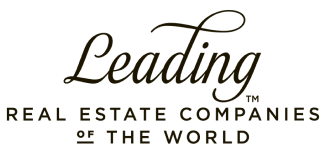Tips for buying your first home
Category BetterBond Advice
Buying your first home is an exciting time in your life and should be a breeze. Sadly, if you are not clued up about the ins and outs of the buying process you may find it quite stressful and challenging to get that first home you have been dreaming of. Here are a few tips to consider before you start your search:
Why are deposits important?
While a purchase with no-deposit requirements or 100% home loans make it easier for young buyers and first timers to get a quick start in the property market, it also means that you will be paying more in the long run. Most deposit requirements can range from 10% - 30% of the asking price of the new property. The more your deposit is, the lesser your monthly repayments will be.
Rudi Botha, CEO BetterBond explains in detail: "So if you are approved for a R1m home loan with no deposit, the interest rate might be 12%, for example, while paying a R100 000 deposit might enable you to secure a R900 000 home loan at an interest rate of 11% or even less, depending on your personal financial profile. And the difference that could make to your current and future finances is really significant." By using the BetterBond affordability calculator buyers can establish the size of the loan they qualify for.
Why is saving money vital?
While saving for a good deposit is important in the long run, potential buyers should also be saving for other expenses. When buying a home there are also some once-off additional costs apart from the deposit. These can be transfer duties, conveyancing fees, deeds registration fees. In some instances, these fees are added to the home loan amount, however, you need to also have accessible funds for moving costs, renovations, new furniture and appliances, home insurance, as well as other costs that may be involved in purchasing a new home. Let's not forget the cost of running a household.
The experts at RealNet Properties suggest that potential buyers should consider these four steps before beginning their search for a home:
1. Seek advice from a mortgage originator. They will help you with getting pre-approved for a home loan so you will know your buying capacity. This move will also assure sellers that you are a serious buyer.
2. Decide on the type of property you want to own. Will an apartment, house, or a townhouse be suitable for your lifestyle? A big yard? Lock-up-and-go?
3. Once you have decided on the type of property you want, create a list of your must-have features. Do you need a garden? A pool with an entertainment area? One or two bedrooms?
4. When you finalise what you are looking for, conduct thorough research online to help you identify the areas that you would like to live in. By doing this you can also have a feel for what the markets are like, homes in your price range, and more. Make sure that the neighbourhood is safe and not a hotspot for criminal activities. You also want to live at close proximity to work and school.
Make the right purchase
As you may view a few properties before making an offer to purchase, to ensure that the property is 'the one' it would be wise to make use of a professional home inspector. They will check for signs of dampness on the walls or plaster, structural cracks, and ensure that the roof is not sagging. They can also confirm that the property does not have rotten timber, hazardous materials like asbestos, lead-based paint and toxic moulds, or faulty electrical, plumbing and gas installations.
Buying your first home will be a challenging process. Let our specialised agents at RealNet assist you with finding your perfect home.
Author: RealNet





































